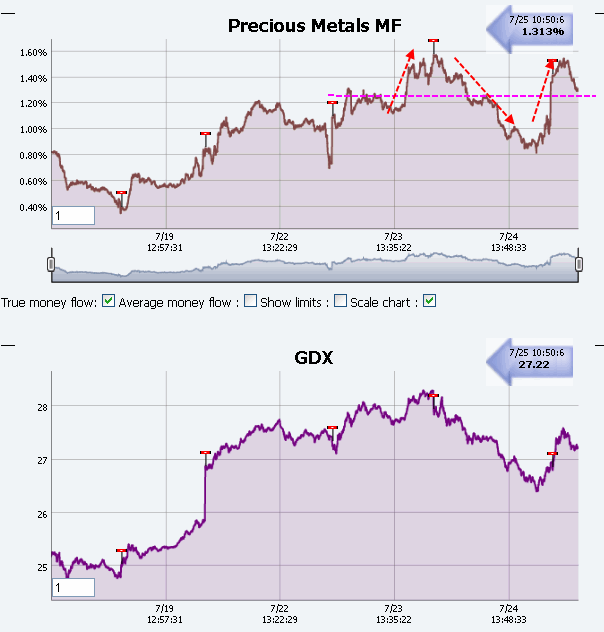The ATR is a measure of volatility.
The Figure below compares the 20D ATR for GDX since 2007.
There are few interesting elements to point:
1. The 2008 ATR jumped to 12%, because we were in the post Lehman crash: "everything must go." We can however see that the GDX bear trend of 2012/2013 does not correspond to a high ATR level. Most of the downtrend in fact corresponded to low ATR levels, which is strange. This indicates a systematic shorting pattern and probably the evidence that funds have been "long equities - short commodities"
2. Usually, High ATR levels (5%) correspond to fast sell-offs
However, we can see that the very right that we are still at the 5% ATR level, although a bounce has been underway. This might indicate that some funds do not want to hold their short position and short covering their shorts in a hurry.
I believe that we are at the start of a possible broadly based short covering activity where the biggest sharks will eat the smaller sharks.
For this reason, I am afraid that the GDX Model could be stuck in a very volatile MF activity that will force it to whipsaw around the Overbought level as it is doing right now. Hence, I prefer to interrupt the production of trade signals by the GDX model for now and until the ATR stays high.
Pascal





 Reply With Quote
Reply With Quote